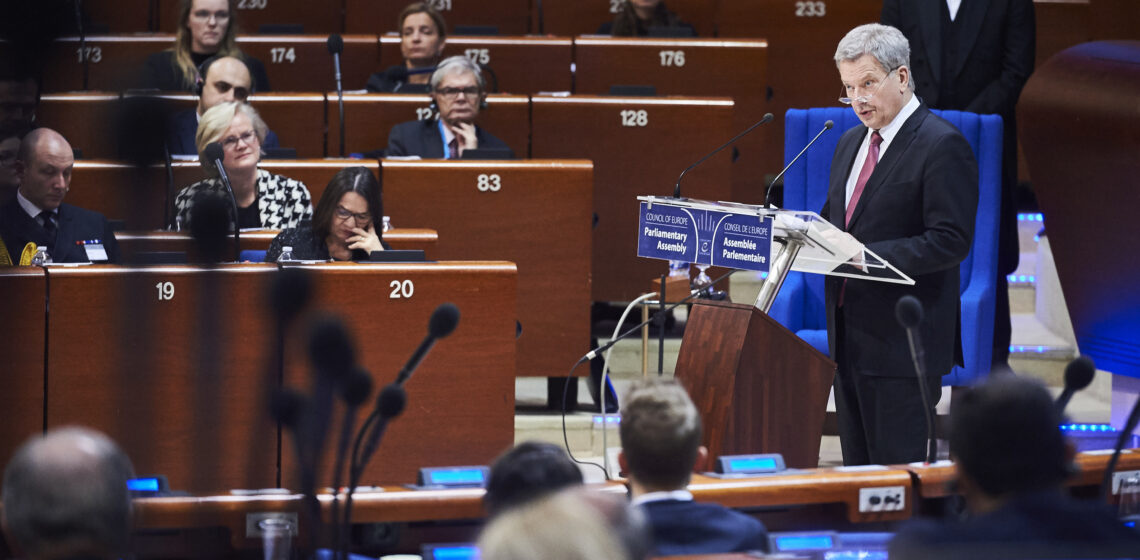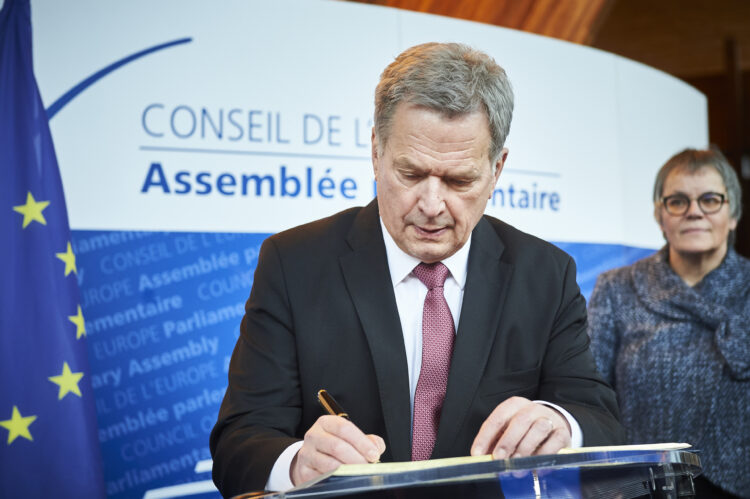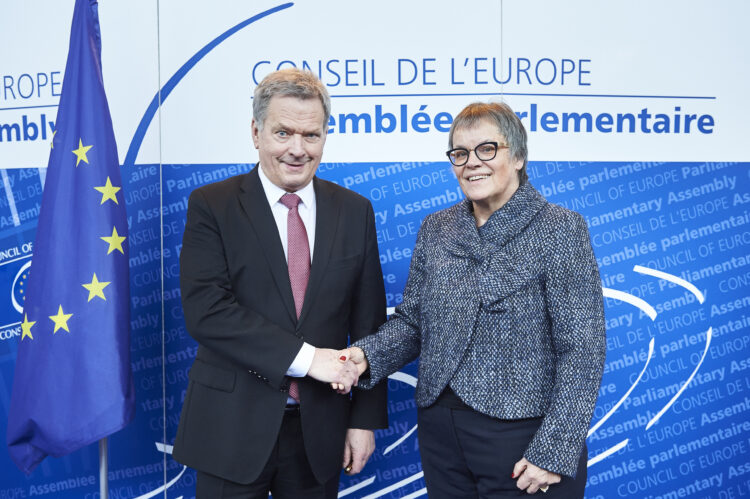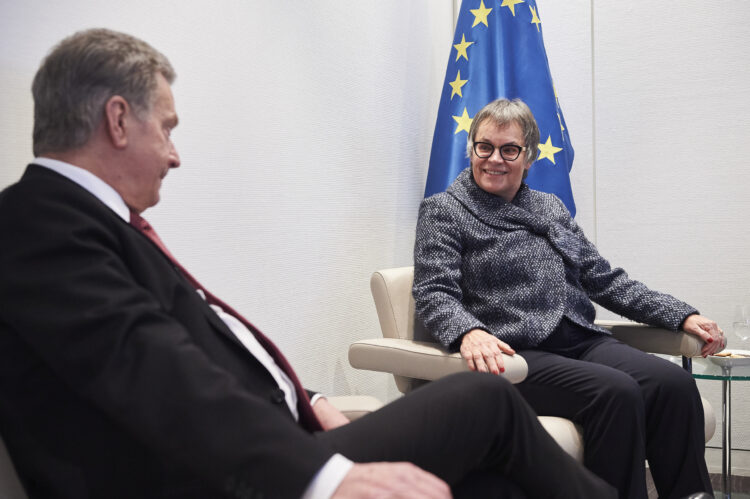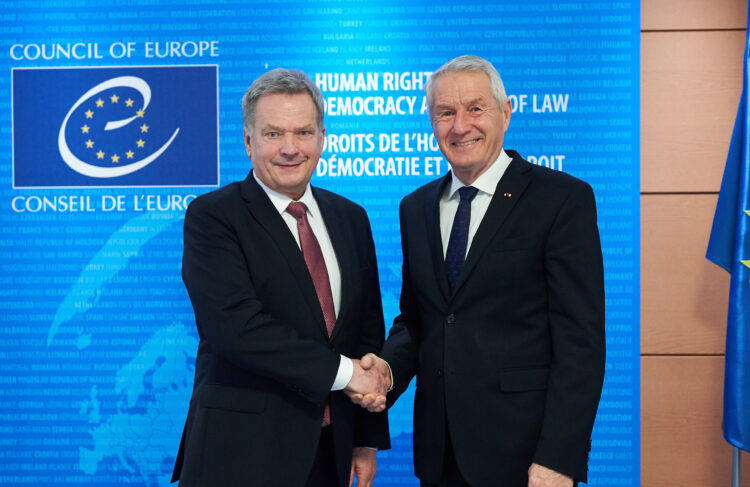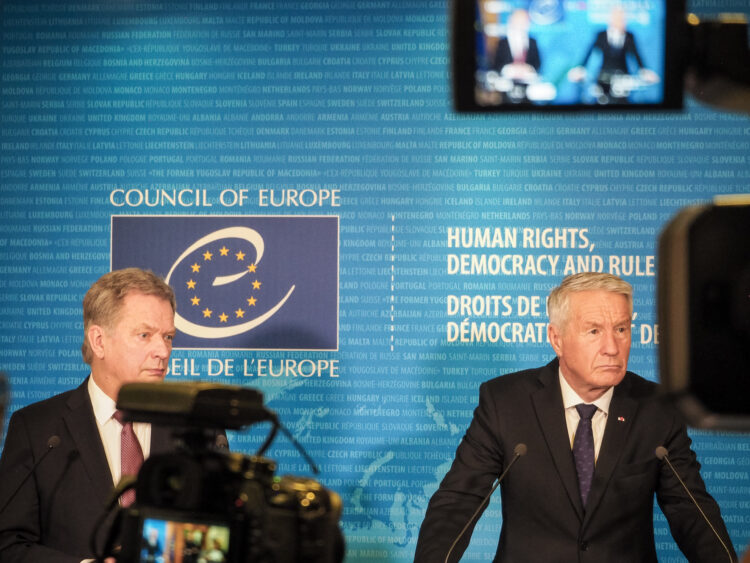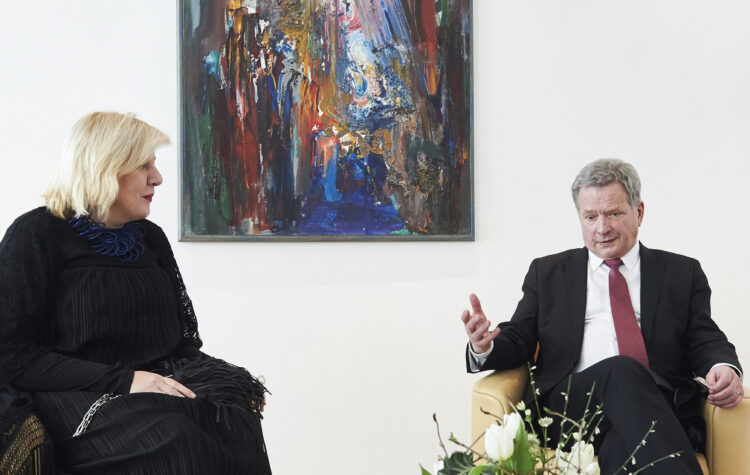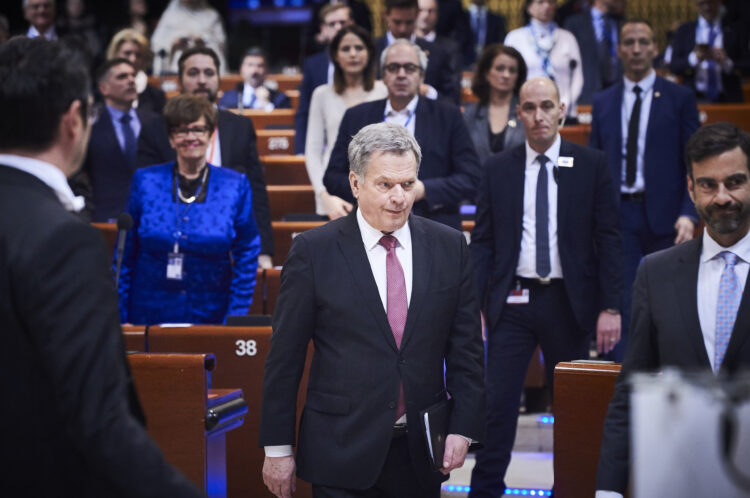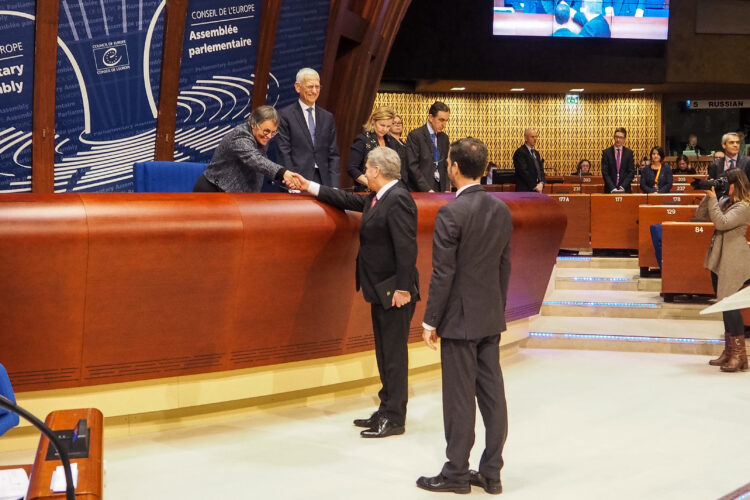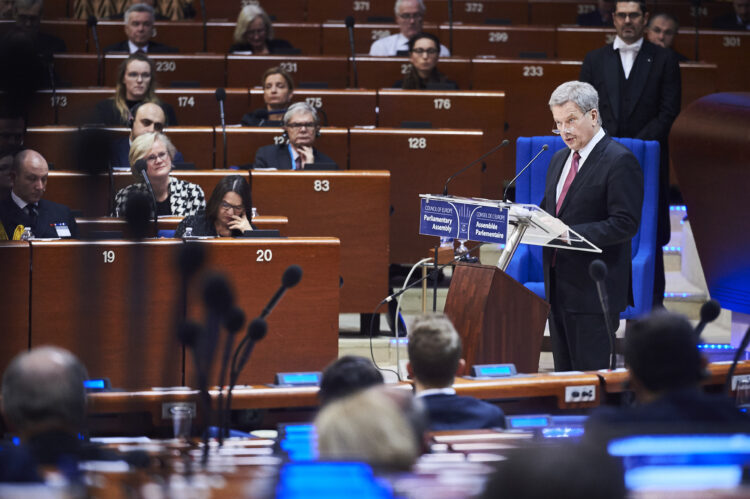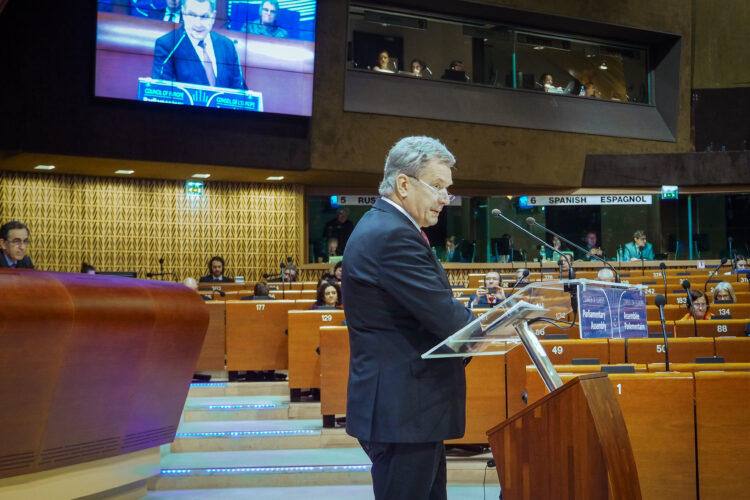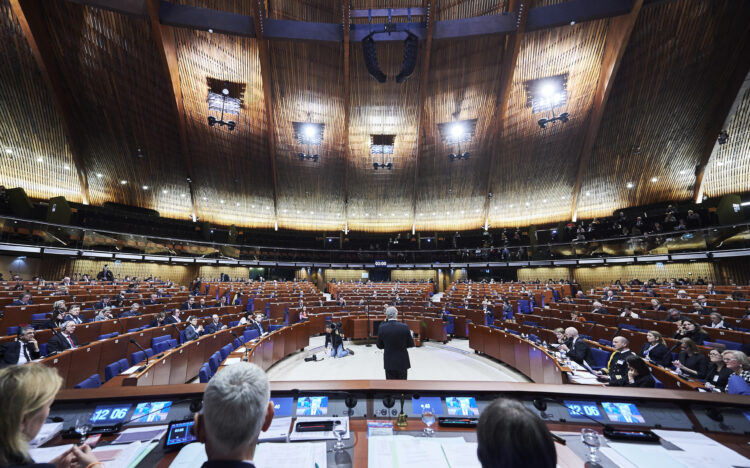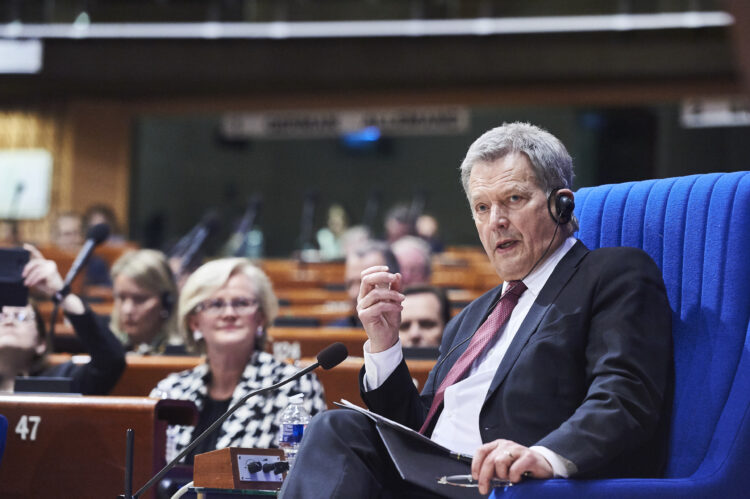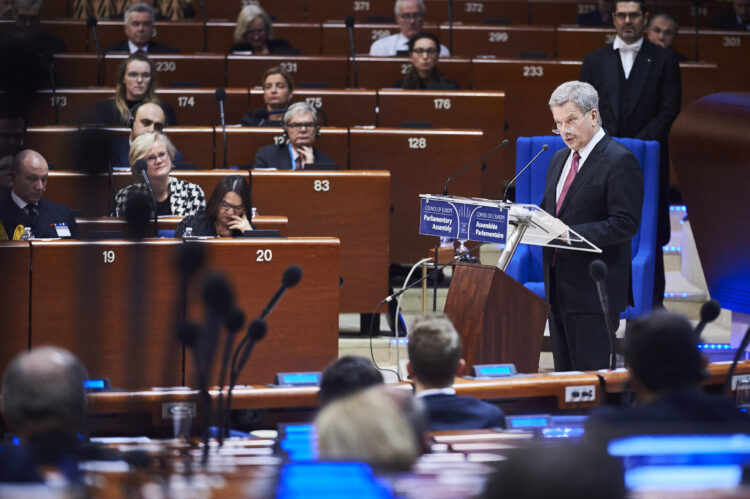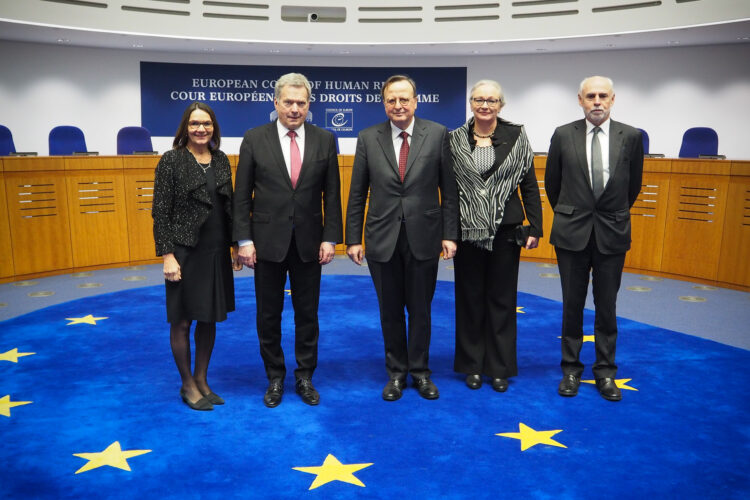President of the Republic of Finland Sauli Niinistö attended the Parliamentary Assembly of the Council of Europe on Wednesday, 23 January 2019 in Strasbourg, France.
In his address to the assembly, President Niinistö highlighted the meaning of the values the Council of Europe stands for. “Human rights, democracy and the rule of law – the values the Council of Europe stands for – can only thrive in a state of peace. Maintaining the absence of war must be our highest priority.”
President Niinistö observed that these are the values that define us as Europeans and expressed his concern that they are increasingly being talked of in the past tense. “In fact, many of the current divisions in Europe seem to be exactly about our own core values. Instead of exporting them as we used to, we now have to concentrate on defending them at home.”
He went on to note that the entire rules-based international order finds itself under growing pressure. “The standards and provisions the order consists of, and the multilateral institutions that guard them, have profound implications on our daily lives. If they are weakened, ordinary people – individuals, all of us – will suffer,” he said.
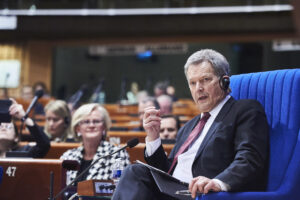
Council of Europe – a backbone for all members
In his speech, President Niinistö also touched upon the organisational reforms currently being carried out at the Council, urging member states to take this as an opportunity to discuss the future vision and focus of the organization.
“My hope is that the Council of Europe remains the backbone for all its members. The reform process should build on the unique strengths of the organization. They are, in particular, the European Court of Human Rights, the Commissioner for Human Rights and the monitoring mechanisms.”
He also urged the Council to remain agile and to continue “living in time”, adding that “a need for dynamism in the work of the Council of Europe may come from completely new sources. New technologies like artificial intelligence, or climate change with all its repercussions, can provide us with unforeseen impacts – affecting human rights, democracy and the rule of law.”
Finland currently holds the Presidency of the Committee of Ministers of the Council of Europe. In his speech, President Niinistö chose to highlight equality as one of the priorities of Finland’s presidency. He argued that gender equality has been a central element in Finland’s success story, driving the country’s rise from poverty to prosperity. Such a success story, he said, would not have been possible without equal opportunities for all. “What has worked out well for Finland, applies to the world at large.”
President Niinistö added that one of his commitments as a HeForShe Impact Champion of UN Women will be to reduce violence against women in Finland. “The issue of the persistent high level of violence against women and girls, not only in Finland but globally, is a source of deep disquiet and concern for me. In order to build more equal and sustainable societies, this violence has to stop.”
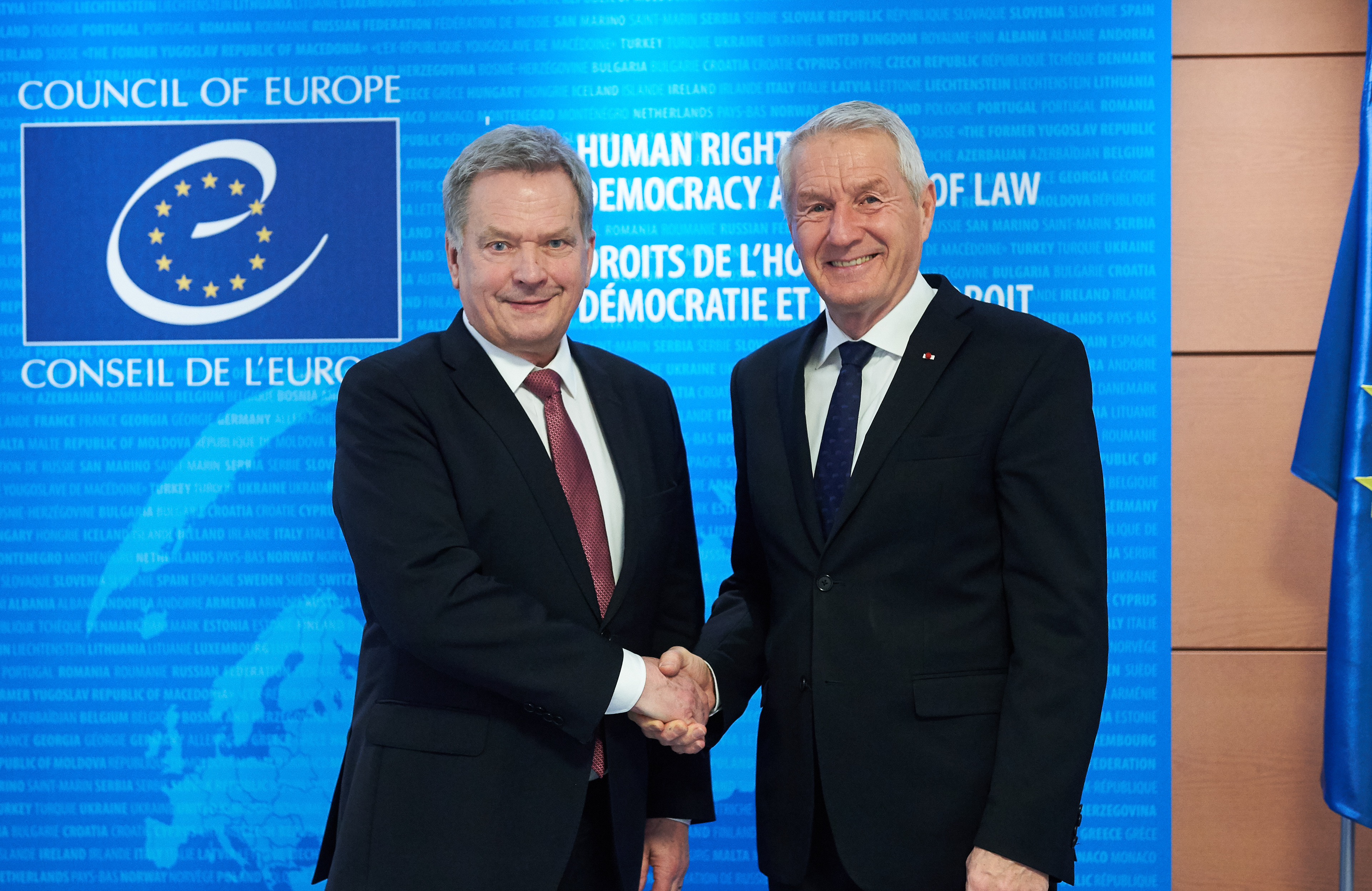
Russia’s exit would be a significant loss
President Niinistö noted that the Council of Europe currently finds itself in a worrying political situation on account of Russia’s role within in the Council, membership fees and membership. Russia is currently not participating in the work of the Parliamentary Assembly of the Council of Europe. “Let me be clear: there are no doubts about the origin of this situation. Finland was among the first countries to publicly condemn the annexation of Crimea. Nonetheless, Russia’s departure from the Council of Europe would be a loss for all sides. And ultimately, it would be yet another blow for the entire rules-based international order,” President Niinistö said, adding that he was confident the Council of Europe would find the way to solve this current crisis.
The issue of Russia’s participation in the work of the Council of Europe was also raised in President Niinistö’s meetings with Thorbjørn Jagland, Secretary General of the Council of Europe and Liliane Maury Pasquier, President of the Parliamentary Assembly of the Council of Europe. President Pasquier and President Niinistö’s discussions focused at length on the issue of equality.
During his visit to Strasbourg, President Niinistö also met with Dunja Mijatović, Council of Europe Commissioner for Human Rights and Guido Raimondi, President of the European Court of Human Rights. President Niinistö also attended a commemorative ceremony to mark Holocaust Remembrance Day and the opening of an exhibition celebrating the 60th anniversary of the European Court of Human Rights.


